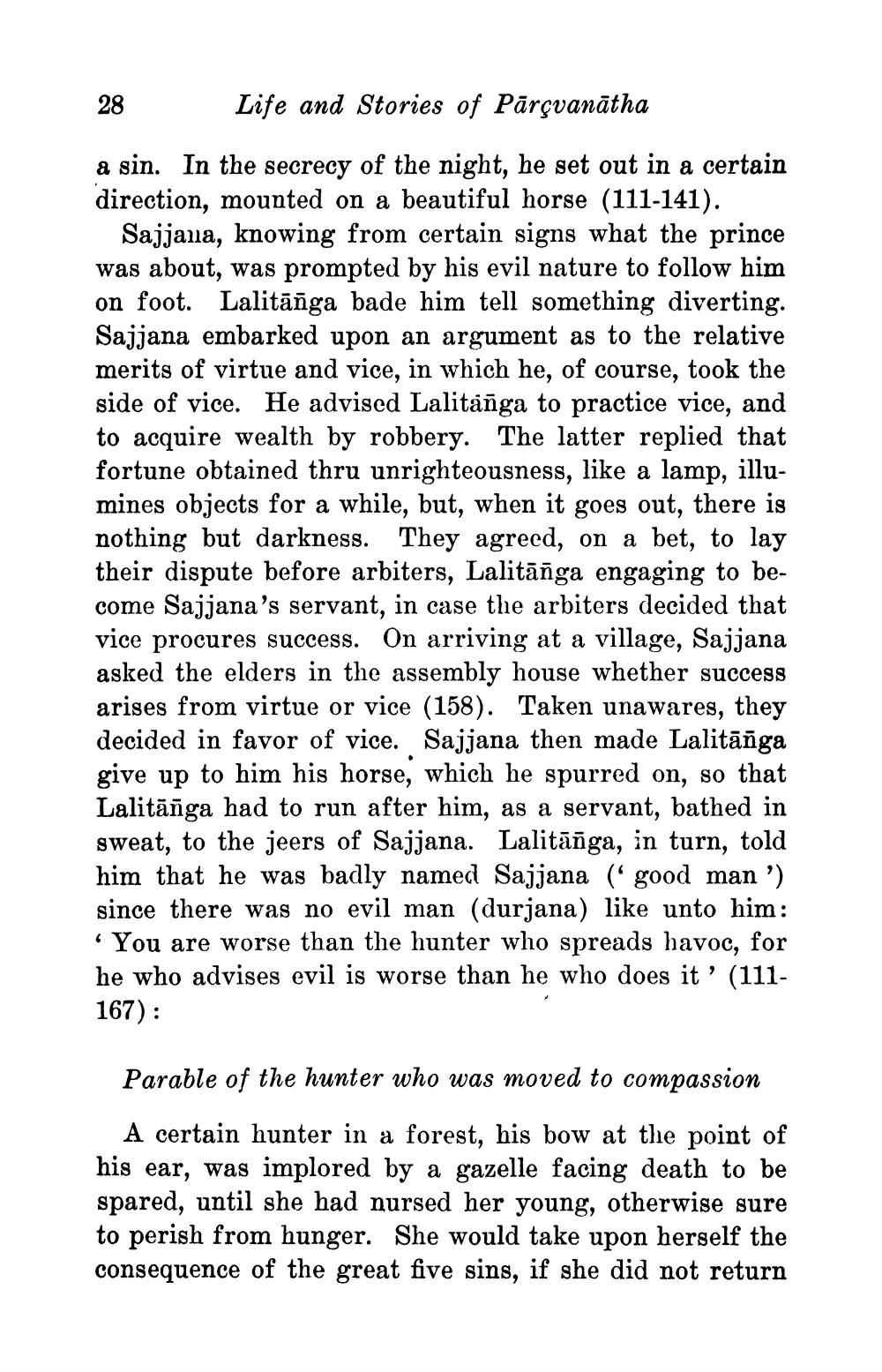________________
28
Life and Stories of Pārçvanātha
a sin. In the secrecy of the night, he set out in a certain direction, mounted on a beautiful horse (111-141).
Sajjana, knowing from certain signs what the prince was about, was prompted by his evil nature to follow him on foot. Lalitāñga bade him tell something diverting. Sajjana embarked upon an argument as to the relative merits of virtue and vice, in which he, of course, took the side of vice. He advised Lalitañga to practice vice, and to acquire wealth by robbery. The latter replied that fortune obtained thru unrighteousness, like a lamp, illumines objects for a while, but, when it goes out, there is nothing but darkness. They agreed, on a bet, to lay their dispute before arbiters, Lalitāñga engaging to become Sajjana's servant, in case the arbiters decided that vice procures success. On arriving at a village, Sajjana asked the elders in the assembly house whether success arises from virtue or vice (158). Taken unawares, they decided in favor of vice. Sajjana then made Lalitānga give up to him his horse, which he spurred on, so that Lalitāñga had to run after him, as a servant, bathed in sweat, to the jeers of Sajjana. Lalitāñga, in turn, told him that he was badly named Sajjana (good man ') since there was no evil man (durjana) like unto him:
You are worse than the hunter who spreads havoc, for he who advises evil is worse than he who does it' (111167):
Parable of the hunter who was moved to compassion
A certain hunter in a forest, his bow at the point of his ear, was implored by a gazelle facing death to be spared, until she had nursed her young, otherwise sure to perish from hunger. She would take upon herself the consequence of the great five sins, if she did not return




